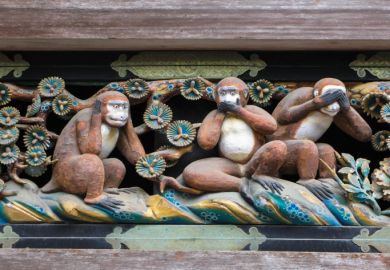This short autobiography recounts the evolution of a significant intellectual life shaped by thoughts and ideas gleaned from living in three countries - India, Germany and the US.
J. N. Mohanty was born in Cuttack (in the eastern state of Orissa) and raised wherever his father was posted as a judge. His roots lie in a village where there still stands an ancestral house to which his family would return regularly. As was customary for a comfortably off middle-class Indian boy, Mohanty grew up learning Hindu myths and rituals as well as attending an English-medium government school during the last days of the British Raj.
In 1945, he went to Calcutta to read philosophy at Presidency College and gradually became a devotee of the city's cultural ambience, in spite of the overwhelming chaos of those years, in which he witnessed corpses littering the streets during the great communal killings of Hindus and Muslims in 1946. He was among the first batch of graduates in independent India, after which he did postgraduate work at the university.
The book's intimate portrayal of his associates in Calcutta confirms that Mohanty belongs to what was a generation of well-informed, discerning minds. A colleague, Rash Vihary Das, my own former tutor, used to receive philosophy books direct from Blackwells in Oxford before anyone else in Calcutta. Mohanty quotes a remark about Das made by Sir Sarvepalli Radhakrishnan, the one-time professor of philosophy at Calcutta who became president of India: "Rash Vihary thinks I do not know any philosophy" - and an even more pointed remark by another colleague apparently made to Radhakrishnan himself: "Professor, you are a first-rate speaker, a second-rate politician and a third-rate philosopher." Like the author, I mourn for such honesty in the present Calcutta academy.
The chapter on Gottingen, where he went in 1952 for his doctorate and to read mathematics as well as Vedic Sanskrit, is particularly engaging.
Mohanty, who is best known for his work on Edmund Husserl, brings to life German phenomenologists such as Hermann Wein and Josef Konig. He also describes his discovery that some academic acquaintances were tainted with Nazism; and he reflects that he knew nothing of Nazi atrocities because in the Indian newspapers "Hitler was praised as a man of great moral and spiritual power" as a result of his being a celibate and a vegetarian who did not smoke or drink.
After teaching intermittently in Calcutta, Mohanty eventually emigrated to the US in 1970, where he became a professor at Temple University and Emory University. Calcutta was then so politically volatile and violent with the rise of the Naxalite extremists that he could no longer maintain the tranquillity of mind needed for philosophy; he was also perhaps missing the stimulation of contact with Western phenomenologists. His robust self-analysis of why he decided to leave, despite his status in Calcutta, is honest and unsentimental, and will interest many faced with a similar dilemma. Between Two Worlds is an intriguing memoir by a scholar deeply rooted in his Indian heritage who achieved a considerable position in the study of Western philosophy.
Krishna Dutta holds degrees in philosophy from Calcutta University and Birkbeck, University of London.
Between Two Worlds
Author - J. N. Mohanty
Publisher - Oxford University Press
Pages - 134
Price - £14.99
ISBN - 019 564835 8
Register to continue
Why register?
- Registration is free and only takes a moment
- Once registered, you can read 3 articles a month
- Sign up for our newsletter
Subscribe
Or subscribe for unlimited access to:
- Unlimited access to news, views, insights & reviews
- Digital editions
- Digital access to THE’s university and college rankings analysis
Already registered or a current subscriber? Login



